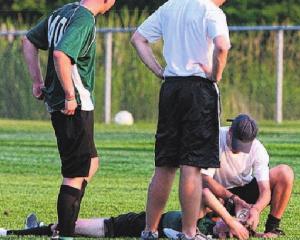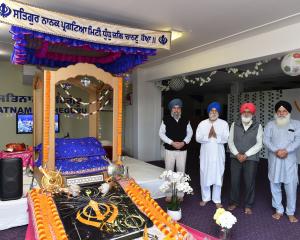Panthers captain Ryan Standring said the Otago Nuggets would struggle against them if things were evened up.
"If we were all in chairs, we would beat them."
The Panthers were recruiting players for the new season in March, he said.
The team has eight regular players, who train two nights a week and the team is running fortnightly Sunday sessions at the Edgar Centre from 4pm searching for potential team-mates, with the next session on November 4.
The team had a dozen manoeuvrable wheelchairs available for new recruits.
Mr Standring, and fellow Panthers Rob Gillan and Dale Gillan were in the development squad for the New Zealand men's team and were hoping to make the New Zealand team at the next paralympics in Rio de Janeiro in 2016.
ParaFed Otago vice-president Alana Draffin said only eight disabled women played wheelchair basketball competitively in New Zealand, while more than 50 disabled men competed.
Basketball used a classification system to evaluate the functional abilities of players, so the Panthers wanted players with disabilities so more subbing options were available at tournaments, she said.
However, able-bodied players were welcome to play and socialise, Mr Standring said"We don't worry who we play against, as long as we have opposition."
The Panthers would be travelling to tournaments in Nelson, Wellington and Auckland next year and fundraising began at the weekend with a BBQ in South Dunedin, he said.
Spina bifida
The most common birth defect worldwide, when the spinal column of a baby does not close properly.
The condition affects 1 in 1000 pregnancies and occurs within the first 28 days of conception, before many women realise they are pregnant.
More than 1550 people live with spina bifida in New Zealand.
Source: Spina Bifida New Zealand












